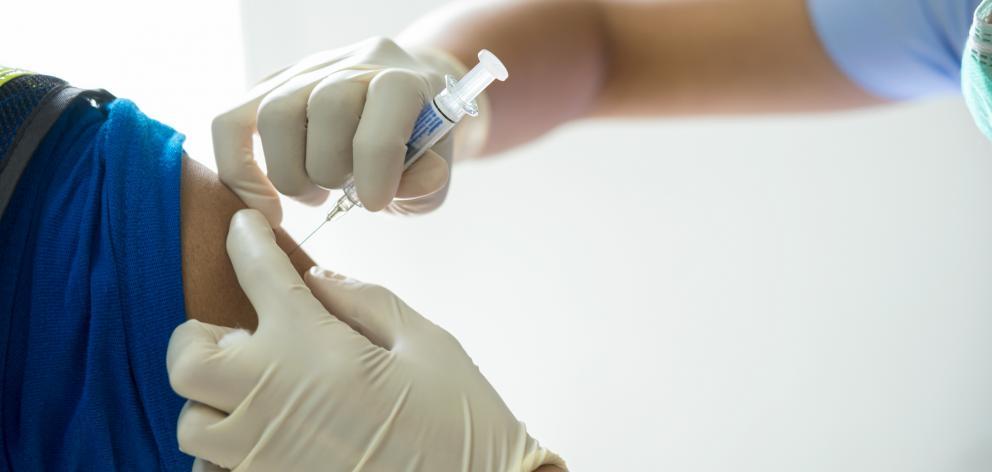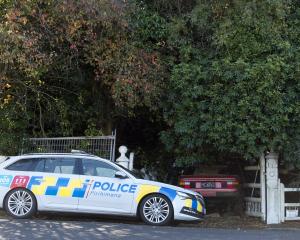
But experts here say most Kiwis should be relatively well shielded against the very worst impacts of Covid-19 for now - and don't see great urgency to replace boosters we have already.
Last month, the UK approved a new "bivalent" vaccine designed to work against the original BA.1 Omicron variant, as well as the ancestral Sars-CoV-2 strain that New Zealand's own vaccines and boosters to date have targeted.
BA.1-based bivalent boosters have also just been approved by Health Canada, the European Medicines Agency, and by regulators in Australia, where citizens as young as 30 were also given the option of getting a fourth dose two months ago.
The US has gone further, with the Food and Drug Administration (FDA) approving new BA.5-targeted boosters from Pfizer and Moderna last week.
In New Zealand, MedSafe was still working with Pfizer on its plans to submit data on variant vaccines, which was expected over the coming months – meaning Omicron boosters wouldn't be here any time soon.
"Our agreements with Pfizer remain commercially sensitive and confidential, as are all our purchase agreements for Covid-19 vaccines," said Astrid Koornneef, director of Te Whatu Ora's National Immunisation Programme.
"However, we have well-developed relationships in place with a range of vaccine manufacturers and continue to monitor progress in this space, including the development of potential new versions of vaccines as they emerge."
In the meantime, second boosters remained available here for people aged over 50 and healthcare workers older than 30 – and recommended for high-risk groups including over 65s, Māori and Pacific people and severely immunocompromised people.
But uptake remained lacking: just over half of more than 700,000 over-65s had received that extra dose, along with only around two in 10 Kiwis aged between 50 and 64.
For most younger vaccinated adults, it's now been well over more than three months since they received their last shot – and the vaccine's effectiveness against symptomatic infection would have waned substantially.
Still, experts told the Herald that protection against severe illness, hospitalisation and death would still be strong: even in people who'd received only two doses.
"In lower risk groups, those two doses are actually doing a reasonable job on its own," University of Auckland vaccinologist Associate Professor Helen Petousis-Harris said.
That owed to immune memory, specifically T-cells and B-cells able to be activated to fight new infections, which had been shown to linger long after vaccination.
New Zealand remained one of the most vaccinated countries in the world – particularly among the elderly – and also had one of the lowest case fatality rates.
"With these new variants, it's pretty hard to prevent infection - at least for very long – with vaccines," Petousis-Harris said.
"What we originally set out to do was prevent severe disease and death – and we're still doing that really well."
And with Omicron having washed over most of the population, most Kiwis would likely have gained further protection through "hybrid immunity".

"We're confident that young people who've had their first booster are in pretty good shape: and they're in excellent shape if they've had a booster and then had Omicron."
One recent Swedish study showed one specific group of protective and highly-specialised T cells could remain even 20 months after infection.
"Boosters are not starting from the beginning, but rather, they build on the existing immunity that we develop over months," Petousis-Harris said.
"But in terms of adding further doses, I think the returns of these are diminishing over time."
As it stood, she felt boosting efforts over the long term should primarily focus only on those most at risk.
"We don't yet have the evidence to support wide use of additional boosters," she said, adding we couldn't yet see what real difference Omicron-centred boosters were making in overseas populations.
IMAC director Associate Professor Nikki Turner echoed that point.
"There may not necessarily be a need to revaccinate the whole population – and it's looking more and more that, in the future, vaccination will be focused on high-risk groups."
On Australia's move to extend booster eligibility, Turner said: "It's not our position to challenge that."
"What we're saying is that the evidence base for younger people having a second booster is clearly not there yet, unless they've got a significant underlying medical condition," she said.
"People may anxious and appropriately want to get protected, but at this stage, there is no rush for New Zealand to recommend a second booster for younger people."
Turner similarly saw no urgency in rolling out a vaccine targeted at any single Omicron strain.
She said it might be sensible for New Zealand to use bivalent mRNA vaccines going forward, perhaps alongside completely different types, such as Novavax's protein-based shot, Nuvaxovid, which was recently given expanded provisional approval as a first or second booster here.
There was also the possibility of getting new vaccines that targeted both flu and Covid-19, "which would make a lot of sense for our high-risk people", she said.
Meanwhile, Koornneef said MedSafe had received a Pfizer application for a Covid-19 vaccine for under-fives, and this was now being assessed as a priority.
"However, as with any new medicines application, it is subject to a number of steps before it can be approved, with timing dependent on this process," she said.
"The application may also be declined at any of these stages."












